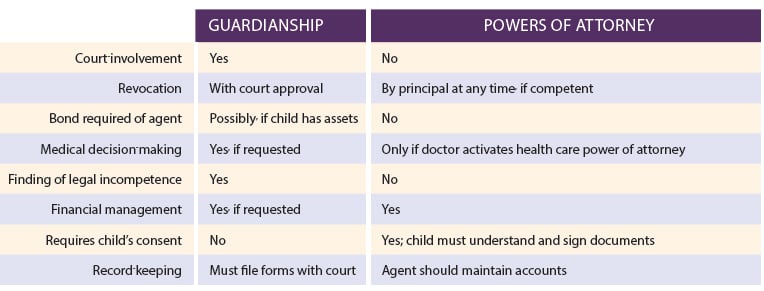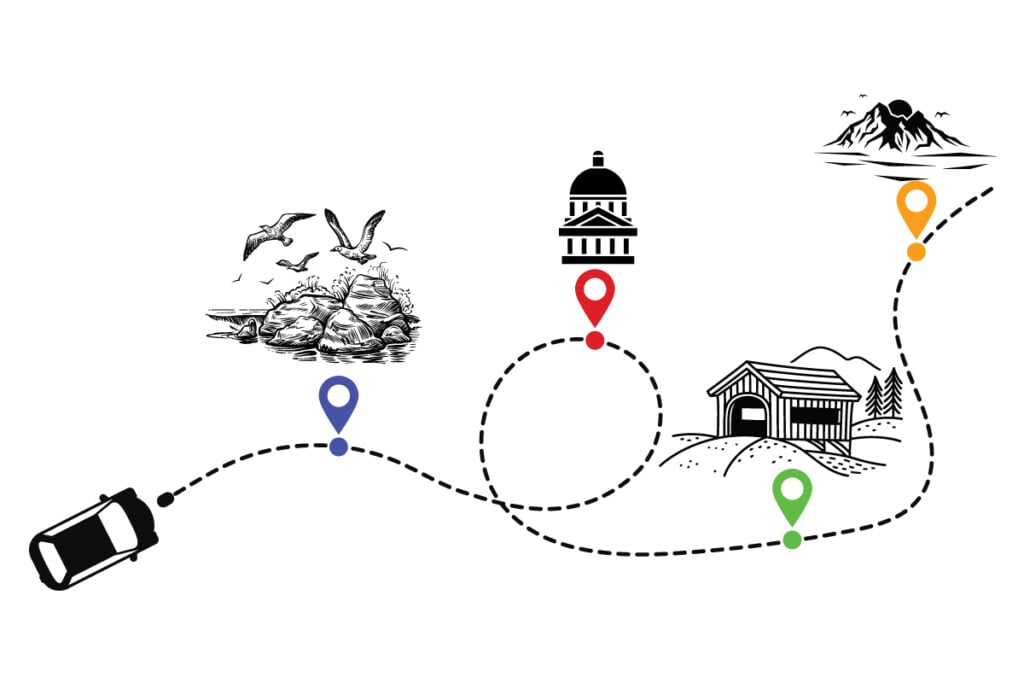My child with a disability is an adult — now what?
What you should know about your legal options to care for an adult child with disabilities
Most children, with or without disabilities, continue to need parental assistance when they turn 18. Many parents are surprised to learn their ability to make decisions regarding education, finances, medical care, or anything else, are rights that now belong exclusively to their adult child.
You do have options when your child reaches adulthood including seeking guardianship or obtaining a power of attorney.
Guardianship
Once an individual is 18, that individual is presumed competent to manage every aspect of her life. If the individual is incompetent to do so, the probate court may appoint a guardian.
To obtain guardianship, the parent or other third person must file a petition with the probate court in the county where the child resides. To find the location of your probate court, call the state trial court at 1-855-212-1234, option 3.
The forms to establish a guardianship are available from the probate court and also are on the state court website: courts.state.nh.us. The forms that need to be completed in addition to the petition for guardianship of incapacitated person are the Department of Health & Human Services Record Release Authorization and Division of State Police Criminal Record Release Authorization form.
Counsel is required in all cases, even in cases where it is obvious that the child lacks the ability to make decisions for him or herself. If the child does not have assets or income to pay an attorney, the court will appoint an attorney if the parents or child complete a financial affidavit and request court-appointed counsel.
The petition should not be filed until the child turns 18. Although some counties will allow a petition to be filed shortly before the child’s 18th birthday, the hearing will not be held until after the child turns 18. Hearings are required, but the child does not have to appear at the hearing if the parent or the parent’s attorney files an affidavit from the child’s doctor.
The form, also available on the court’s website, requires that the physician swears under oath that the child will not understand the nature of the proceedings, or that appearing at the proceedings will be detrimental to the child.
The parent may also need to be bonded if the child has assets. The bond is usually without securities, meaning the parent does not need to purchase the bond from an insurance company. Instead, the court will require that the parent sign a fiduciary bond that is filed with the court. Once appointed, the guardian must complete and file annual reports with the court, and can be fined if those reports are not filed on time.
A guardianship might be obtained when the child is unable to make decisions in his or her own best interest or provide for his welfare, and is unwilling or incompetent to sign a durable power of attorney. The adult child should not sign a durable power of attorney if he or she is unable to understand what a power of attorney is.
Powers of attorney
The durable power of attorney is a document signed by one individual (the principal) appointing another individual (the attorney-in-fact or agent) to act for him or her.
Power of attorney can be roughly divided into two categories: the financial durable power of attorney, which addresses issues related to daily living, such as financial matters, education, public benefits and privacy/access to documents, and those that address health care.
Powers of attorney avoid court involvement. Unlike a guardianship, the child is never determined to be incompetent. The child is simply allowing someone else to act for him. But they are only appropriate if the adult child is capable of understanding the document.
The financial durable power of attorney can be effective either immediately or upon the occurrence of a certain event. In most cases, it is preferable to have a power of attorney effective immediately.
Powers of attorney can give the parent authority to do things such as open bank accounts for their children, continue to make educational decisions for their children, decide where their children will live, and apply for benefits for their children, although in some cases a particular agency such as the Department of Health and Human Services will require an additional form to be signed before the parent can do so. Also, the Social Security Administration requires that the adult child an Appointment of Representative form before the parent can act for the child.
The state of New Hampshire requires certain language to be in a power of attorney for it to be effective, and should be acknowledged before witnesses and a notary. Powers of attorney can be tailored to your child’s particular needs.
A durable power of attorney for adult children who are in school should include provisions giving the parents authority to make all decisions under the IDEIA, Section 504, of the Rehabilitation Act, and the Americans with Disabilities Act. Doing so will allow the parent to continue to act for the child in terms of meeting with the school district, agreeing to evaluations, signing IEPs, requesting mediation or due process, settling a case on the child’s behalf, etc.
The power of attorney for health care (also called an advance directive) is similar to a financial durable power of attorney because it allows an individual, who is capable of understanding, to appoint someone else, the agent, to make decisions. However, it differs from guardianship and a financial durable power of attorney.
It applies only to medical care and health care decisions such as hospital admissions, or whether to take medications or to have a medical procedure, and it is only effective after the individual becomes unable to make medical decisions for himself. Also, a doctor must determine the individual is unable to make his or her own health care decisions.
Powers of attorney do not expire after a certain date or after a certain number of years. They can be changed or updated at any time if situations change as long as the person is competent.
Guardianship vs. Powers of Attorney

Sheila O’Leary Zakre is a lawyer with 27 years of experience. She specializes in in disability law, including public benefits, Social Security, SSI, Medicaid, discrimination, special education, and benefits planning, including special needs trust, and estate planning for families of children with disabilities. Her son, 25, is an area agency client at Community Bridges, Inc. She owns Zakre Law Office in Concord. Contact her at 224-4400 or sheila@zlawnh.com.












